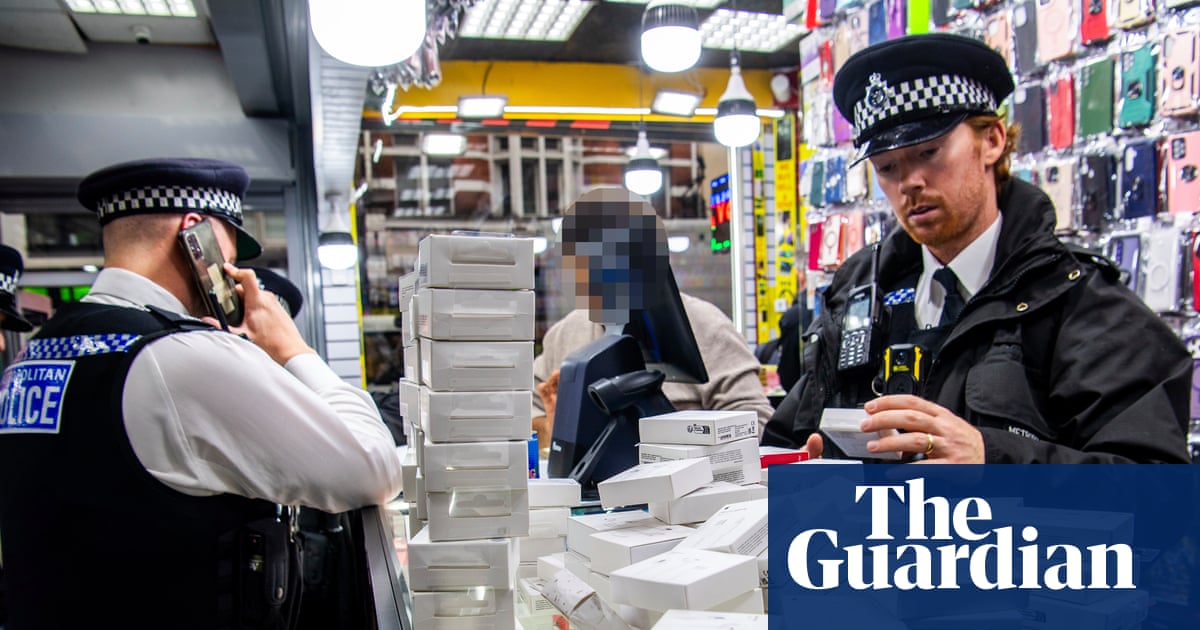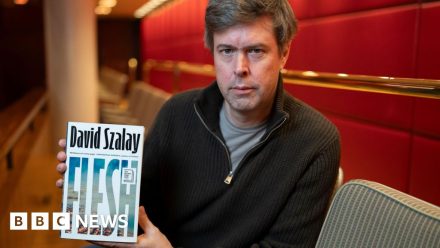A rainbow of vapes and Apple‑branded boxes lit the window of a south London shop as a group of officers prepared to enter. Police had been watching the premises for months and had already sent products bought there to independent labs; many returned with a high risk of electrocution or fire.
Most of the vapes on sale were illegal after a law passed in June banned single‑use devices to reduce environmental damage and curb youth use. The shop was one of six electrical goods outlets, all close to one another in Lambeth, targeted by a team of about 80 people from the Metropolitan police, HM Revenue and Customs, the local authority and Trading Standards.
The raids were part of Operation Machinize 2, a nationwide crackdown on high‑street crime aimed at cash‑intensive businesses in the “grey economy” believed to be linked to money laundering. The National Crime Agency helped plan raids on more than 2,700 premises, which led to 924 arrests. Police seized more than £10.7m in suspected illegal proceeds, 111,000 illegal vapes, 70kg of cannabis and 4.5m illegal cigarettes.
Inside the south London shop the walls appeared lined with Apple products, but a trademark representative and officers noticed every box showed the same serial number — a clear sign the items were counterfeit. Inspector Oliver Lamb, who has worked for the force for more than 12 years, was overseeing the Lambeth operation.
“It’s not the first time we have been to some of these shops – for some it’s been the third visit this year,” Lamb said, noting that earlier raids had not stopped managers restocking the same products. “Originally we thought that removal of the stock would be a significant enough message to the retailers, and to explain to them you can’t do this, and why you can’t do this, and you’re going to lose it soon. When we came [here] earlier this year we seized £18,200 worth of Apple products alone, and that doesn’t include the vapes which were probably equal in volume. So it didn’t disrupt them – I thought it would prevent it and it didn’t.”
Companies House records link the small shop to multiple companies, including one now dissolved under the proprietor’s name. As officers searched, the owner protested the goods were genuine and argued with the trademark representative. Police nevertheless bagged counterfeit AirPods, chargers and cables, and seized disposable vapes.
Officers said such shops are often used to hide other illegal businesses in secret rooms; teams checked beneath counters and for hidden compartments. They found no secret rooms at this location but did seize more than £3,000 in cash from the till.
Not every electrical goods retailer in the area is illegitimate, but the NCA has warned the issue is widespread nationally. Reaction from locals was mixed during the raid: a passerby filmed the operation while shouting at officers, “What the fuck are you pigs doing here? Haven’t you got anything better to do?” At the same time, some people remained unbothered — a woman ate lunch nearby while police questioned another business owner, and several customers continued to enter the store to buy products, including a vape.
Lamb said the shops cause public frustration and pose health risks. Witnesses at a nearby large retailer told police they regularly saw the shop selling disposable vapes to children. “[Counterfeit goods] are a source of public frustration. They buy the product, they find it’s fake and then they’ve got no consumer rights,” he said. “We’ve got chargers, watches, counterfeit Apple goods and AirPods by the bag load, as well as counterfeit vapes, which is quite concerning as we’ve got no idea what people are inhaling from it. Success is shutting these businesses down and making way for legitimate ones.”
Officials described Machinize 2 as the largest operation of its kind targeting the grey economy. An estimated £2.7m of illicit goods have been destroyed as a result, and more than 450 businesses were reported to Companies House for further investigation. “Depriving criminals of their source of income has a real impact, limiting the amount of funds they can reinvest in further offending and deterring them from taking spaces on our high street that could be used by legitimate businesses,” said Rachael Herbert, director of the NCA’s national economic crime centre.


